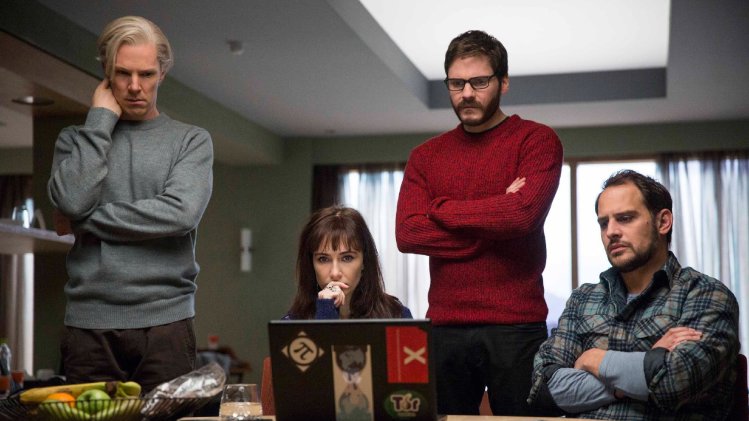
TORONTO (AP) — WikiLeaks founder Julian Assange may be holed up in the Ecuadorian embassy in London, but he's very present at the Toronto International Film Festival.
Opening this year's festival on Thursday was the premiere of Bill Condon's dramatization of Assange and WikiLeaks, "The Fifth Estate" — a film with which Assange refused to cooperate. It's the only movie at Toronto that has the distinction of being called "a massive propaganda attack" by its primary subject.
That was the opinion Assange dished out on the film in a video link in January in which he waved a supposed copy of the film's script. He has also called it the "anti-WikiLeaks movie."
But the film, which stars Benedict Cumberbatch as the Australian activist, is far from the character assassination Assange feared, but rather a layered, complicated portrait of him and his whistleblower website as laudatory as it is critical.
"When we tried to actually make contact — Benedict made the most overt gestures — we were rebuffed," director Bill Condon said in a recent interview. "He has the sense of it being something very different than what it is."
The film's screenplay by Josh Singer was partly based on "Inside WikiLeaks: My Time With Julian Assange and the World's Most Dangerous Website," by Daniel Domscheit-Berg, an early WikiLeaks collaborator who publicly and bitterly fell out with Assange; and "WikiLeaks: Inside Julian Assange's War on Secrecy," by British journalists David Leigh and Luke Harding. Both are books Assange disapproves of.
The point of view of "The Fifth Estate" is thus largely from the perspective of Domscheit-Berg (Daniel Bruhl). Assange, played meticulously by Cumberbatch in one of the finest leading performances by the British actor, is portrayed as a visionary with democratic ideals for information and altruistic motives for whistleblowers, and alternatively, as a lying, reckless revolutionary (perhaps justifiably) consumed by paranoia, who ultimately sabotages his own creation by his refusal to consider the lives of revealed sources in published documents.





